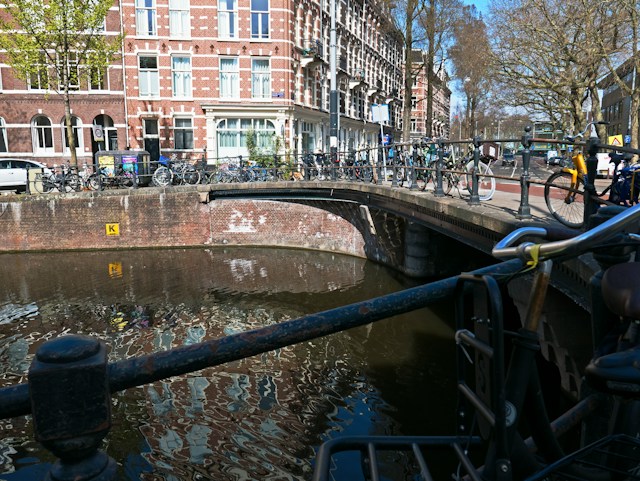As technology continues to evolve around us, you are witnessing the birth of a new era. An era where artificial intelligence (AI) is playing a pivotal role in shaping our urban spaces into smart cities. This technological revolution is expected to make our cities more efficient, sustainable, and liveable. This article will delve into the various ways AI and other technologies are influencing the evolution of smart cities.
The Concept of Smart Cities
Before we delve into the role of AI, let’s first understand what a smart city is. A smart city is an urban area that uses different types of electronic methods and sensors to collect data. Insights gained from this data are used to manage assets, resources, and services efficiently. They encompass several aspects such as urban planning, public transport, water and energy management, waste disposal, and environmental protection.
A lire aussi : What Caused the Demise of a Historic Toy Manufacturer?
AI has emerged as a critical tool in realizing the full potential of smart cities. By utilizing machine learning algorithms and data analytics, city authorities can make informed decisions in real-time, enhancing the city’s efficiency and sustainability.
AI and Urban Planning
When it comes to urban planning, AI is a game-changer. By using machine learning algorithms, city planners can analyze vast amounts of data to make informed decisions. AI can analyze demographic data, traffic patterns, and land use to help planners design cities that meet the needs of their residents.
Cela peut vous intéresser : What are the implications of ai-powered drones in security and surveillance?
For instance, AI can predict which areas will experience high traffic at particular times, allowing city planners to design better road systems and public transportation routes. This not only improves traffic management but also reduces air pollution caused by traffic congestion.
AI and Energy Management
Energy management is one of the key aspects of smart cities. Here, AI is being used to optimize energy consumption and reduce carbon footprints. By analyzing data from various sources like weather forecasts, energy usage patterns, and grid conditions, AI can predict future energy needs and manage supply accordingly.
Smart grids powered by AI can stabilize the energy supply-demand balance, reducing the risk of blackouts. They can also facilitate the integration of renewable energy sources into the grid, promoting a more sustainable energy system.
AI and Public Services
Public services such as waste management, water supply, and public safety can also benefit from AI. For example, AI can help in predicting waste generation patterns, enabling city authorities to plan waste collection and recycling more efficiently.
In water management, AI can predict water demand based on weather patterns, population growth, and consumption trends. This will enable city authorities to manage water resources more efficiently, reducing wastage and ensuring a steady supply.
In the context of public safety, AI can enhance surveillance systems, helping in crime prevention and emergency response. Facial recognition technology, powered by AI, can identify criminals and missing persons in real-time, bolstering public safety efforts.
AI and Citizen Engagement
Smart cities are not just about technology; they are also about people. AI can facilitate better engagement between city authorities and citizens, enhancing the sense of community.
AI-powered chatbots can handle most of the queries from citizens, providing them with timely information and guidance. AI can also analyze social media posts and online reviews to gauge public sentiment, helping city authorities respond proactively to the concerns of citizens.
Moreover, AI can make public services more personalized. Based on personal preferences and past interactions, AI can provide citizens with customized information and services, enhancing their experience.
In essence, AI is transforming our cities into intelligent, responsive entities capable of learning from their actions and evolving over time. This is not just about making our cities smarter; it’s about creating urban spaces that can adapt to the changing needs of their inhabitants, ensuring a better quality of life for everyone. It’s indeed an exciting time to be alive as we witness the birth of truly smart cities.
AI and Autonomous Vehicles in Smart Cities
In the evolution of smart cities, autonomous vehicles are becoming a crucial element. These self-driving cars equipped with AI can revolutionize the way we understand mobility in cities. They can help reduce congestion, decrease accidents, and improve overall traffic flow.
Artificial intelligence enables autonomous vehicles to navigate the city streets, understand the traffic situation, and make decisions in real-time. They can analyze data from onboard sensors and external sources to predict the behavior of pedestrians and other vehicles, ensuring safer rides.
In the United States, several cities are already testing autonomous vehicles on their streets. These cities are leveraging AI to collect and analyze data about traffic patterns, road conditions, and pedestrian behavior. This data is then used to improve the safety and efficiency of autonomous vehicles.
The integration of autonomous vehicles into city operations can also bring about significant environmental benefits. Autonomous vehicles are typically electric, leading to a reduction in carbon emissions and energy consumption.
Moreover, AI can optimize the route for autonomous vehicles, reducing travel time and further improving energy efficiency. It can also facilitate the integration of autonomous vehicles into public transportation, enhancing the accessibility of transport services.
In essence, AI and autonomous vehicles are making our cities smarter and more sustainable, leading to enhanced quality of life for citizens. The concept of smart cities, empowered by artificial intelligence, is becoming a reality as we continue to witness remarkable advancements in this domain.
Conclusion: The Future of Smart Cities with AI
As we move further into the 21st century, the role of AI in shaping smart cities is becoming increasingly important. It’s evident that AI and technologies like big data and machine learning are ushering in an era of truly smart cities that leverage data analytics for efficient city management decision making.
Whether it’s urban planning, energy management, public services, citizen engagement or the use of autonomous vehicles, AI is at the forefront, making our cities more efficient, sustainable, and responsive. The integration of AI is transforming our urban spaces into intelligent entities capable of real-time responses and proactive solutions.
However, the true essence of a smart city lies not only in adopting advanced technologies but also in its ability to enhance the quality of life for its citizens. AI can facilitate this by making public services more personalized, improving citizen engagement, and ensuring a safer and more sustainable environment.
As we witness the birth of these smart cities, it’s clear that AI is not just a tool but also a catalyst for significant societal transformation. It’s an exciting time to be alive as we anticipate the continued evolution of smart cities.
With AI at the helm, the future of smart cities looks promising, offering a glimpse of a world where urban living is not just about survival but about thriving in a responsive, efficient, and sustainable environment. The concept of smart cities powered by AI is not just a distant dream but a reality that is unfolding before our eyes.
















